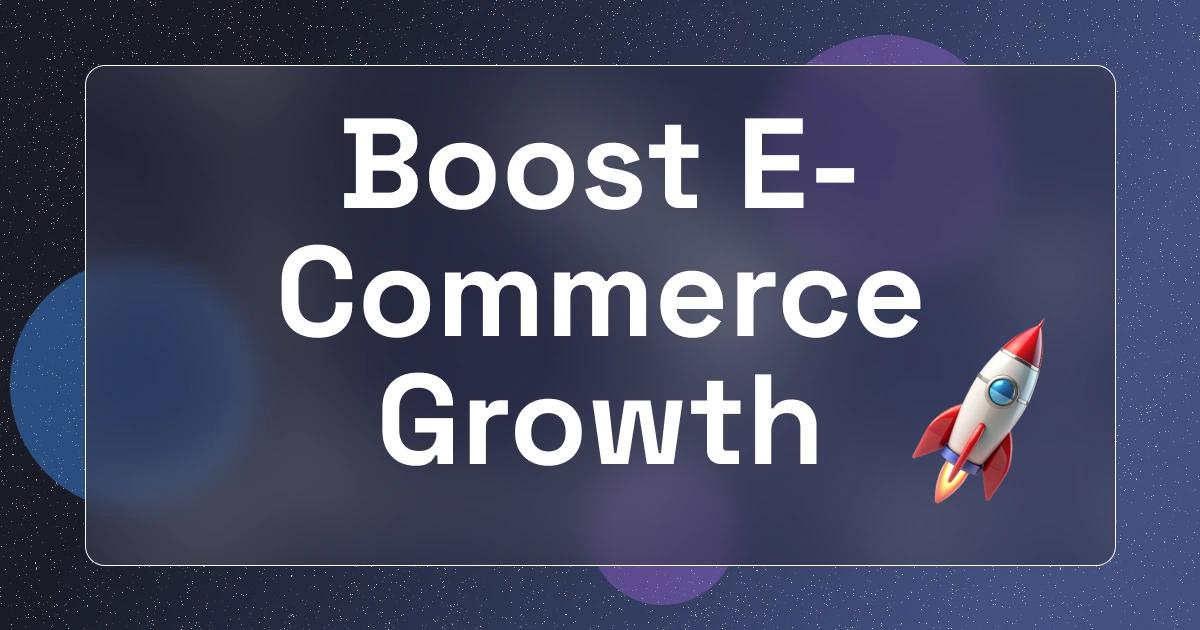
Boost your e-commerce growth with automation and web scraping : The ultimate guide to scaling online sales
In today's fast-paced digital landscape, e-commerce businesses are constantly seeking innovative ways to gain a competitive edge. Web scraping and automation have emerged as powerful tools for driving growth and scaling online sales. This comprehensive guide explores how these technologies can revolutionize your e-commerce strategy, providing valuable insights and practical applications to boost your business performance.
Leveraging web scraping for e-commerce growth
Web scraping has become an indispensable technique for e-commerce businesses looking to stay ahead of the curve. This automated data extraction method allows companies to gather vast amounts of information from websites quickly and efficiently. The global web scraper software market is experiencing rapid growth, with projections indicating it will reach $1.7 billion by 2032, growing at a compound annual growth rate (CAGR) of 13.29%.
One of the primary benefits of web scraping in e-commerce is price monitoring. By automatically collecting pricing data from competitors, businesses can adjust their own prices in real-time to remain competitive. This dynamic pricing strategy can significantly impact sales and profit margins. Additionally, web scraping enables:
- Competitor analysis
- Lead generation
- Market trend identification
- Consumer sentiment analysis
These insights allow e-commerce businesses to make data-driven decisions and adapt quickly to market changes. For example, by analyzing customer reviews and social media mentions, companies can identify emerging trends and adjust their product offerings accordingly.
Furthermore, web scraping plays a crucial role in optimizing inventory management. By monitoring stock levels across multiple platforms, businesses can ensure they maintain optimal inventory levels, reducing the risk of stockouts or overstock situations.
Automation: The key to scaling online sales
Automation in e-commerce goes hand-in-hand with web scraping, enabling businesses to streamline operations and focus on strategic initiatives. By automating data collection and analysis, companies can free up valuable resources that would otherwise be spent on manual tasks.
The benefits of automation in e-commerce extend far beyond data collection. Here's a breakdown of how automation can drive growth:
| Automation Area | Benefits |
|---|---|
| Customer Service | 24/7 support, faster response times, improved customer satisfaction |
| Marketing | Personalized campaigns, targeted advertising, improved ROI |
| Order Processing | Reduced errors, faster fulfillment, improved efficiency |
| Inventory Management | Real-time stock updates, automated reordering, reduced waste |
By implementing automation across these areas, e-commerce businesses can significantly improve their operational efficiency and customer experience. This, in turn, leads to increased sales and customer loyalty.
One of the most significant advantages of automation is its ability to provide real-time insights. With automated data collection and analysis, businesses can make faster, more informed decisions based on up-to-the-minute information. This agility is crucial in the rapidly evolving e-commerce landscape, where trends and consumer preferences can change in an instant.
Overcoming challenges in automated data collection
While web scraping and automation offer tremendous benefits, they also come with their own set of challenges. Understanding these obstacles and developing strategies to overcome them is essential for successful implementation.
Some of the primary challenges in automated data collection include:
- Handling dynamic websites: Many modern websites use JavaScript to load content dynamically, making it difficult for traditional web scrapers to extract data accurately.
- Data integration: Combining data from multiple sources and formats can be complex, requiring sophisticated data processing and cleansing techniques.
- Security concerns: Web scraping must be conducted ethically and legally, respecting website terms of service and data privacy regulations.
To address these challenges, businesses can consider the following strategies:
Invest in advanced web scraping tools: Modern scraping solutions are designed to handle dynamic content and complex website structures. By utilizing these tools, businesses can ensure more accurate and comprehensive data collection.
Implement robust data integration processes: Develop a standardized approach to data cleansing and integration, using ETL (Extract, Transform, Load) processes to ensure data consistency and quality.
Stay informed about legal and ethical considerations: Regularly review and update your web scraping practices to ensure compliance with data protection laws and website policies.
Driving competitive advantage through data-driven decisions
The combination of web scraping and automation provides e-commerce businesses with a powerful competitive edge. By harnessing these technologies, companies can adapt quickly to market changes, optimize their operations, and make informed decisions based on real-time data.
Here are some key ways in which data-driven decision-making can drive growth in e-commerce:
- Improved product development: Analyze market trends and customer preferences to inform new product designs and features.
- Enhanced customer experience: Use customer data to personalize the shopping experience and improve customer satisfaction.
- Optimized pricing strategies: Adjust prices in real-time based on competitor data and market demand.
- Efficient supply chain management: Monitor supplier performance and optimize inventory levels to reduce costs and improve efficiency.
By leveraging these insights, e-commerce businesses can stay ahead of the competition and drive sustainable growth. The ability to make quick, data-driven decisions is particularly crucial in today's fast-paced digital marketplace, where consumer preferences and market conditions can change rapidly.
As the e-commerce landscape continues to evolve, the importance of web scraping and automation will only grow. Businesses that embrace these technologies and develop robust data-driven strategies will be well-positioned to thrive in the competitive online marketplace. By continuously refining their approach to data collection and analysis, e-commerce companies can unlock new opportunities for growth and innovation, ultimately driving long-term success in the digital economy.
Frequently Asked Questions (FAQ)
Share on social
